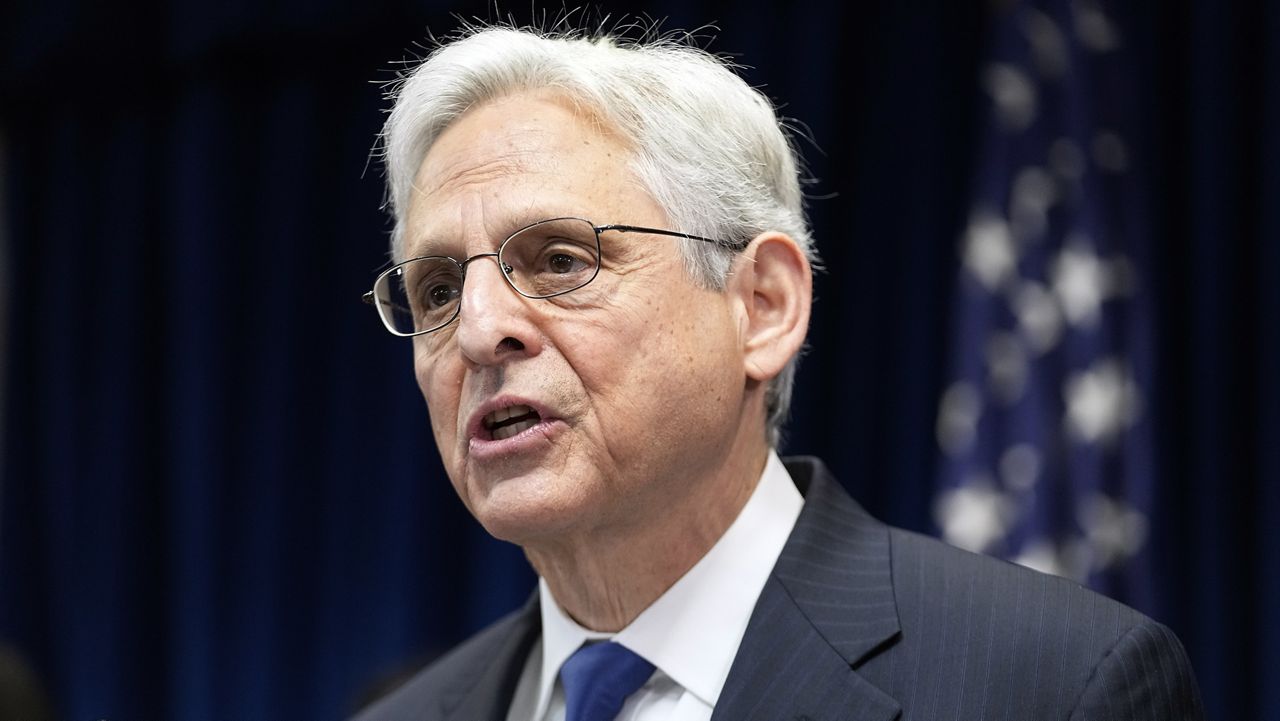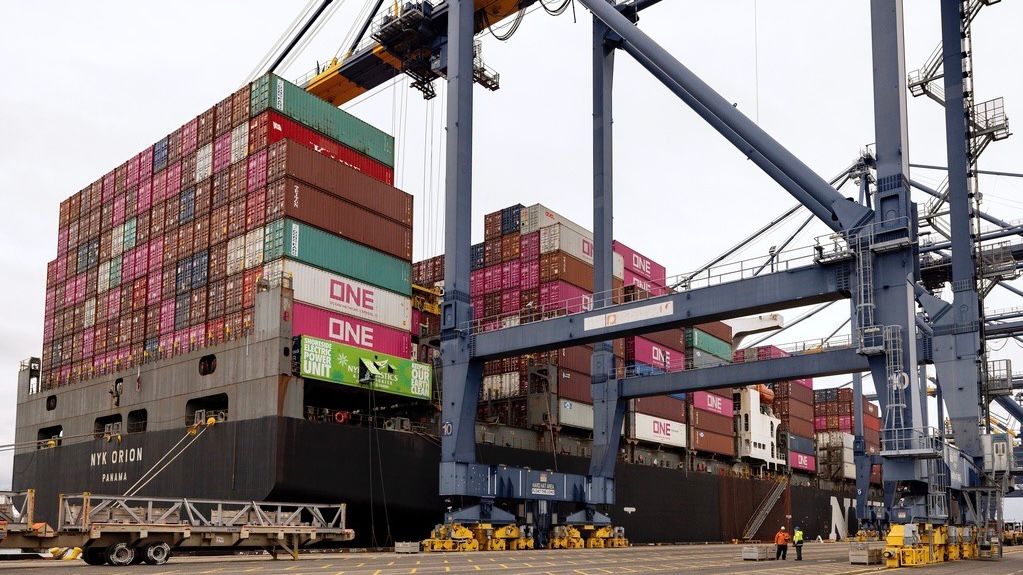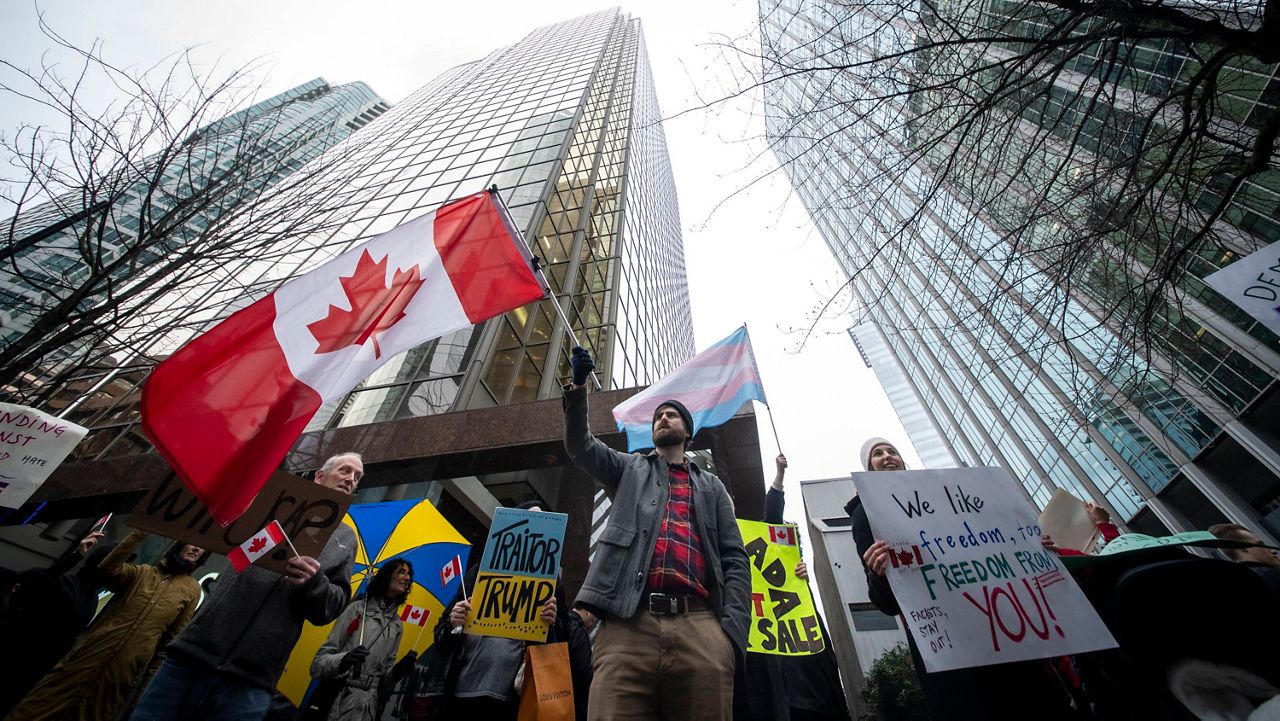Ameris Bank has agreed to pay $9 million to settle allegations from the Justice Department that it violated redlining laws by denying or discouraging minorities from receiving home loans or other credit in Jacksonville, Florida, Attorney General Merrick Garland announced Thursday.
What You Need To Know
- Ameris Bank has agreed to pay $9 million to settle allegations from the Justice Department that it violated redlining laws by denying or discouraging minorities from receiving home loans or other credit in Jacksonville, Florida, Attorney General Merrick Garland announced Thursday
- If approved by a judge, the settlement will mark the 10th reached since the Justice Department launched its Combatting Redlining Initiative two years ago, securing more than $107 million in total
- Redlining is the nearly century-old practice of withholding financial services such as home loans from potential customers who live in neighborhoods deemed high risk, largely due to racial demographics
- Atlanta-based Ameris, which operates 164 locations across the Southeast, said it firmly denies it violated fair-lending laws
If approved by a judge, the settlement will mark the 10th reached since the Justice Department launched its Combatting Redlining Initiative two years ago, securing more than $107 million in total.
Redlining is the nearly century-old practice of withholding financial services such as home loans from potential customers who live in neighborhoods deemed high risk, largely due to racial demographics.
Engaging in redlining violates the Fair Housing Act and Equal Credit Opportunity Act.
“As today's redlining case makes clear, redlining is not just a relic of the past,” Garland said during a news conference in Jacksonville. “Indeed, some of the neighborhoods that we allege Ameris redlined are some of the same neighborhoods that federal agencies originally redlined in the 1930s.
“Moreover, the harm of redlining is not felt only by individuals and communities that are redlined today, but also by the next generation and the next. Redlining makes it difficult for people of color to accumulate wealth through the purchase, refinancing or repair of their homes. This has contributed to and it continues to deepen the persistent wealth gap in our country.”
The Justice Department alleges Ameris set up all 18 of its full-service Jacksonville branches in majority white neighborhoods. When the banking chain elected to close two its branches in an effort to improve efficiency, Ameris identified those locations as having minority populations higher than other nearby branches, Garland said. Ameris had previously referred to one of the branches it closed as among its best financial performers across all its markets, the attorney general added.
In addition, Ameris sent out mail advertising free checking accounts it claimed were targeted to low- and moderate-income areas, but 96.5% of the postcards featuring white models were sent to majority white neighborhoods, according to the Justice Department.
From 2016 to 2021, other lending institutions comparable to Ameris generated loan applications from majority Black and Hispanic neighborhoods at three times the rate that Ameris did, the DOJ said.
Atlanta-based Ameris, which operates 164 locations across the Southeast, said it firmly denies it violated fair-lending laws.
“We strongly disagree with any suggestion that we have engaged in discriminatory conduct and are confident in our efforts to provide equal access to affordable mortgage products in the Jacksonville community and all the markets we serve,” CEO Palmer Proctor said in a statement. “We cooperated fully with the Department’s inquiry and have entered into this settlement to avoid the distraction of litigation and because we share the Department’s goal of expanding access to homeownership in underserved areas.”
Proctor said the terms of the settlement are consistent with Ameris’ existing programs, adding that the company condemns “discrimination in any form.”
From the $9 million settlement, $7.5 million over a five-year period will go toward subsidizing home mortgage, improvement and refinance loans in majority Black and Hispanic communities in Jacksonville.
Six hundred thousand dollars will be spent on partnerships with one or more community-based organizations to provide residents in Black and Hispanic communities in the city with services related to credit, financial education, home ownership and foreclosure prevention.
And $900,000 will be dedicated to advertising, outreach and consumer financial education targeting residents in Jacksonville’s Black and Hispanic neighborhoods.
The settlement also requires Ameris to open a full-service branch in a majority Black and Hispanic neighborhood. In addition, the bank has agreed to hire a third-party consultant to review its fair-lending program in minority neighborhoods across all of its markets, a full-time director of community lending to oversee loans in Jacksonville’s Black and Hispanic neighborhoods and at least three mortgage loan officers dedicated to serving those communities, the Justice Department said.
“As you can see from some of the terms of the settlement, the resolution reached is designed to have a lasting impact on communities of color in Jacksonville,” said Roger Handberg, the U.S. attorney for the Middle District of Florida.
Officials said the Justice Department has more than two dozen other active investigations into redlining across the country. Previous settlements have come in Columbus, Ohio; Houston; Los Angeles; Memphis,Tennessee; New York; Philadelphia; Rhode Island; and Tulsa, Oklahoma.
“This is not just a Jacksonville problem, not just an Ameris problem,” Garland said. “We are looking all over the country with that respect.:
Added Kristen Clarke, assistant attorney general for civil rights: “We're sending a message today: Banks and mortgage companies need not wait for the Justice Department to come knocking at its door. We encourage financial institutions to proactively assess their redlining risk and immediately take corrective action to reach underserved communities in their market areas.”
Ryan Chatelain - Digital Media Producer
Ryan Chatelain is a national news digital content producer for Spectrum News and is based in New York City. He has previously covered both news and sports for WFAN Sports Radio, CBS New York, Newsday, amNewYork and The Courier in his home state of Louisiana.








